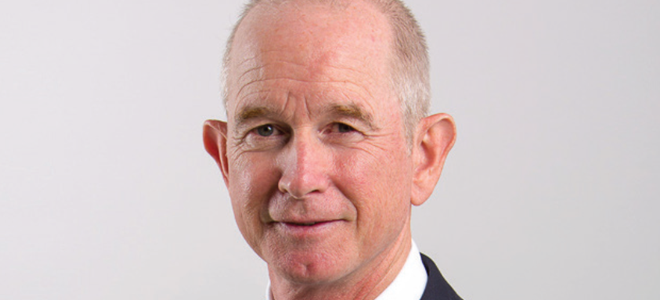Pandemic in perspective - webinar on Covid-19's societal issues

Airmic held a webinar in association with Zurich to focus on the wider social concerns associated with the Coronavirus pandemic.
Countries continue to wrestle with the societal fallout from the Covid-19 crisis. The World Economic Forum’s (WEF) recent Global Risks Report (GRR) 2021 highlighted the wider societal issues that are associated with the pandemic.
Airmic recently hosted a virtual seminar with this fresh in mind, looking at the broader societal issues of the Covid-19 crisis, as well as emerging opportunities that could leave the world better prepared and more resilient to risks in future. Asking the questions, Airmic's new CEO Julia Graham, was joined by John Scott, Head of Sustainability Risk at the Zurich Insurance Group, one of the partners of the WEF’s Global Risk Initiative. John is also on the WEF GRR’s advisory board and a member of the WEF Global Future Council on Frontier Risks.
Pandemic risk had been on the risk register in previous reports. In 2019’s GRR, for example, the spread of infectious diseases only just made the top ten risks, in terms of impact, but not at all in likelihood, exactly a century after the previous global pandemic, Spanish Flu, itself described as a one-in-100-year event, caused millions of deaths around the globe. However, 2019’s GRR did devote an entire chapter to the transformation of biological risks.
“In 2020, the risk of a global pandemic became reality. The crisis has exposed fundamental shortcomings in pandemic preparedness, socio- economic safety nets and global cooperation,” said Scott.
“Governments and businesses have struggled to address compounding repercussions in the form of workforce challenges, disruptions in essential supplies and social instability. They have had to balance health security imperatives against the economic fallout and rising societal anxieties, while relying on digital infrastructure in unprecedented ways.”
The 16th edition of the GRR, published in January 2021, focused on the impacts of widening inequalities and societal fragmentation created by barriers to entry in a new society and economy.
“In some cases, disparities in health outcomes, technology, or workforce opportunities are the direct result of the dynamics the pandemic created,” continued Scott. “In others, existing societal divisions have widened, straining beyond capacity weak safety nets, health care systems and exacerbated existing economic, racial, gender and other inequalities. Whether the gaps can be narrowed will depend on the actions taken in the wake of Covid-19 to rebuild with a view to an inclusive and accessible future. Inaction on economic inequalities and societal fragmentation may further stall climate action, still the greatest threat to humanity in the next decade.”
Governmental responses to the pandemic have varied considerably, but for a plethora of reasons, Scott noted. “It is challenging to compare national-level responses given different starting points: income level, health system maturity, geographic and demographic characteristics, culture and type of political regime. Nonetheless, early lessons can be drawn in five areas which are interdependent, with weak performance in one area having spill-over effects elsewhere,” he said.
The first of these areas is in government decision-making. “Countries that already had pandemic high on their risk registers were more prepared to appreciate the different dimensions of the risk, the key considerations and mitigation options, and the evidence needed to inform decisions. Even with this preparation some countries failed to apply lessons learned in other countries, losing valuable time to build capacity, understand vulnerabilities and develop contingencies,” said Scott.
Another key factor behind governmental response has been the quality of public communication in sustaining popular confidence. Other major differentiators include respective health system capabilities, the management of lockdown regimes, and effectiveness of financial assistance made available to society’s most vulnerable.
Mental health was a key focus of 2019’s GRR, an issue which has since been exacerbated dramatically in the pandemic period, amid lockdown periods, remote working, increased unemployment, home-schooling and social isolation.
“For many people this is an increasingly anxious, unhappy and lonely world,” said Scott. “In 2021 the damage from Covid-19 has been worsened by long-standing gender, race, age and income inequalities. Disadvantaged groups went into the crisis with lower resilience as a result of disparities in well-being; financial stability and security; and access to healthcare, education and technology. This complex combination of existing inequalities and the impact of the pandemic—affect vulnerable groups the most and further fray social cohesion.”
While societies such as the UK are planning their way out of the pandemic, developing countries will face greater problems, particularly for the most vulnerable people in society.
“Not surprisingly given these risks and the disparities, highlighted and exacerbated by the crisis, it is the most vulnerable in emerging economies, those workers in the informal economy, the daily wage earner, who relies on that income to provide food and clean water for their families that is in need of support from civil society, NGOs and the charity sector. That also applies to the disadvantaged groups even in the wealthiest and most developed countries, where we have seen huge demand for foodbanks and community support,” said Scott.
“Half of the world’s population lacks access to essential health services, and shortfalls in public health push 100 million people into extreme poverty every year. This has amplified the pandemic’s impact on the physical well-being of people in low-income households, women and the elderly. It’s against this backdrop that young adults (ages 15–24) around the world are experiencing their second major global crisis within a decade an experience that has seen them dubbed “Pandemials”. As a group, they entered youth in the throes of the financial crisis and are now exiting at the outset of a pandemic not seen in generations. They will face serious challenges to their education, economic prospects and mental health,” he continued.
“Regional inequalities persist beyond fundamental economics; these disparities are visible in access to education, health care systems, social security and protection from violence and conflict. Pre-pandemic, almost 44% of girls and 34% of boys from the poorest strata of society did not complete primary school and during the first wave of pandemic lockdowns, 80% of students globally were out of school. As traditional classroom teaching was replaced by remote learning, at least 30% of the global student population lacked the technology to participate in digital and broadcast learning,” he added.
The Covid-19 crisis has highlighted the benefits of public-private partnerships to increase social preparedness and resilience to major risk events, Scott highlighted.
“It’s important to have clarity on what strengths each side brings to solve the challenges; for private organisations to bring their innovation, energy and agility; for public organisations and governments to streamline the structure and policy frameworks to enable a successful outcome. I can think of great examples like the rapid development of vaccines by the private sector helped by government funding and streamlined approval processes to reduce time to market,” he said.
“At Zurich, through our charitable Foundation, I believe we have done great things with our partners and with governments to address flood resilience and to tackle mental health and well-being. For example the “Tackle Your feelings” programme, run with people who have played sports and struggled with a mental health issue, giving individuals the tools and motivation to take care of themselves,” he added.

John Scott is Head of Sustainability Risk at the Zurich Insurance Group
